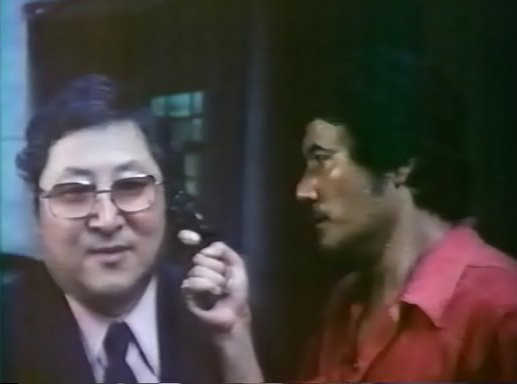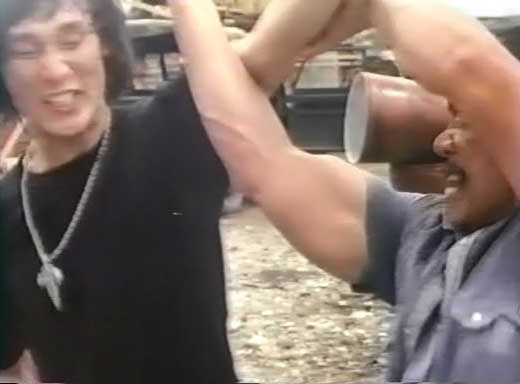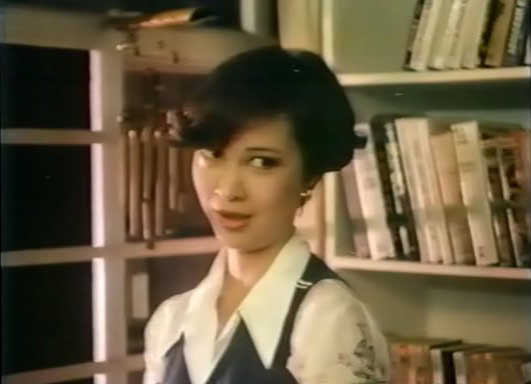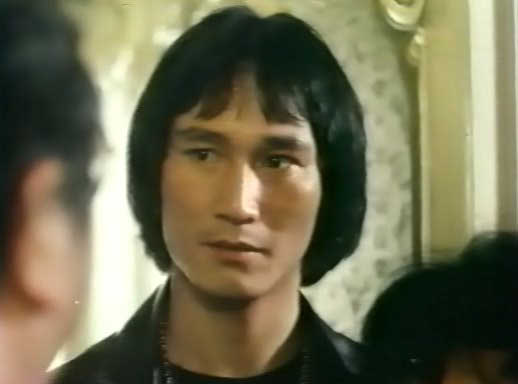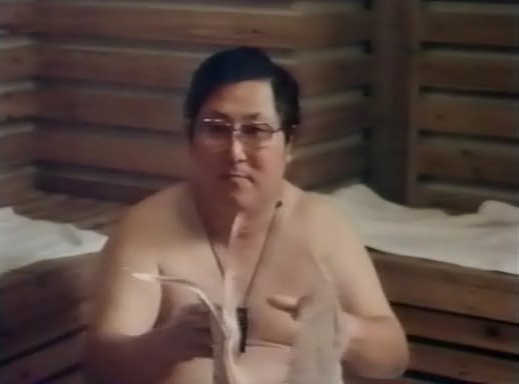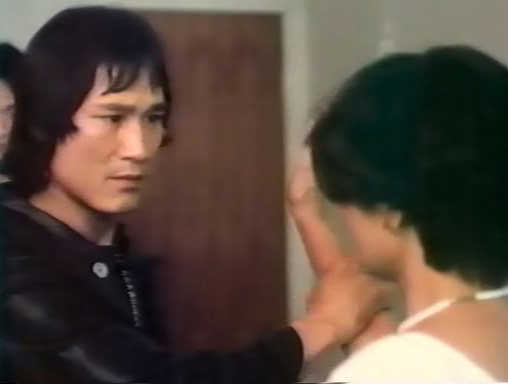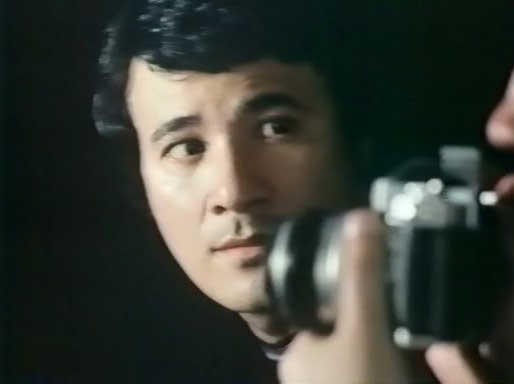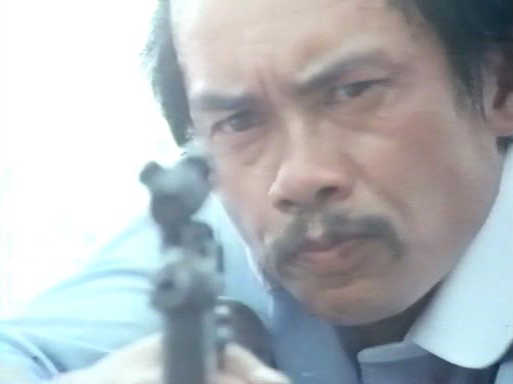Jumping Ash
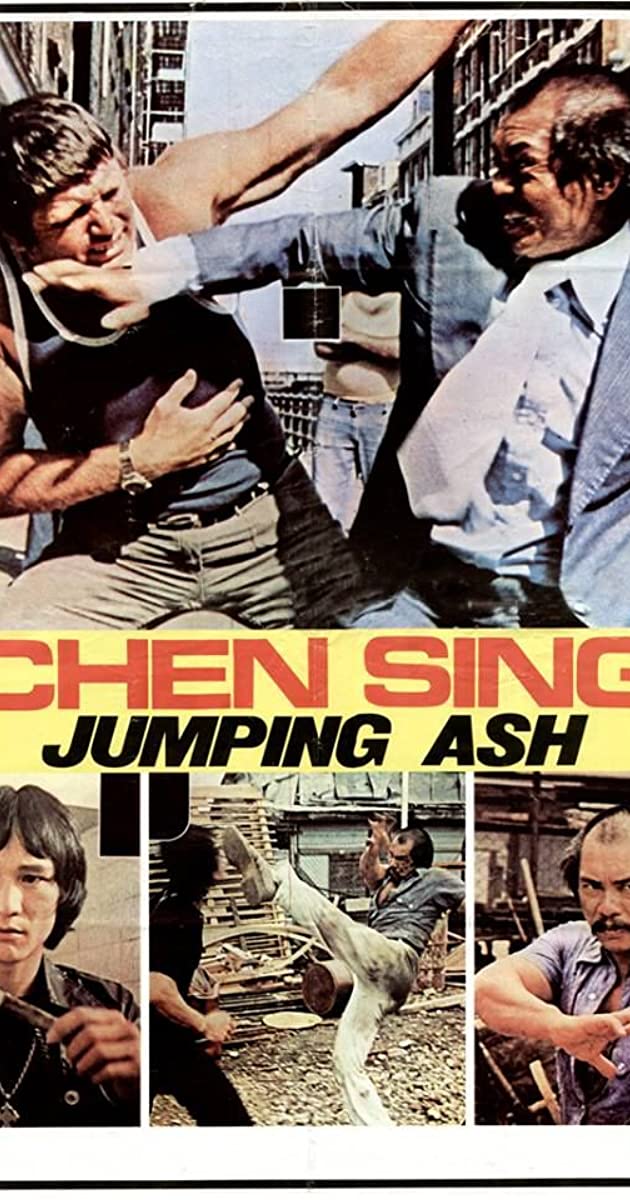
Director: Leung Po-chi
Year: 1976
Rating: 7.5
I have been chasing this film down for years because if you read about Hong
Kong cinema you will come across references to it as a very influential film.
But it is a film that is very difficult to access for some reason. Probably
ownership issues. There is a print of it out there that has been shown in
public but it never made it onto DVD except in the gray market and those
are copies from an Ocean Shore vhs that is dubbed. Which is what I watched.
I hate dubbed films but you take what you can get.
Even under those circumstances it is a very good film as it edges up to the
Hong Kong New Wave and puts its foot over. Most academic writings place the
beginning of the New Wave in 1979 with Cops and Robbers (Alex Cheung), The
Butterfly Murders (Tsui Hark) and The Secret (Ann Hui), but Jumping Ash has
most of the characteristics attributed to the New Wave. Such as usage of
a handheld camera, location shooting in realistic street settings, edgy cinematography,
rough editing and as was the case with many New Wave directors, Leung Po-Chi
studied film abroad - in fact he was brought up in England - and then went
through a period in HK television. This was his debut. There is also a sense
that this was something different, something new from what the two big studios
- Shaw Brothers and Golden Harvest - were doing. A mood of unease, realism
and pessimism runs through the film. Everything looks like it needs a cleaning,
gritty and dangerous. I would not be surprised if the French Connection was
playing through the mind of the director.
And where this film came from is also intriguing. It was produced by the
film company Bang! Bang! Films that was formed by the famous Cantonese star
Josephine Siao Fong-fong. After literally starring in hundreds of Cantonese
films in the 1960s she was now looking for other challenges in grown up roles
and as a producer. She is credited both as co-director and co-scriptwriter.
The other scriptwriter is Philip Chan who had been in the police force since
1965 and had risen to the rank of Divisional Commander of Police in C.I.D.
But at the same time he developed a great interest in film making and when
Josephine invited him to help with the script he jumped at it - and with
the enormous success of the film (third in the box office that year) he left
the police department and entered into a very lengthy career as an actor
and director. And just as a note, the Production Manager was Ronnie Yu later
director of Bride with White Hair and Bride of Chucky. It all started here
with this film.
There is a gang war going on that stretches from Amsterdam to Hong Kong.
In an opening scene an assassin (Michael Chan Wai-man) illegally slips off
a boat in Amsterdam, tracks down the head of the rival gang and kills him.
This brings on an attempted retribution from Grinning Tiger (Chan Sing) against
the rotund always smiling Boss Tung (Nick Lam). At the same time Detective
Callan (Ga Lun) is trying to bring down Boss Tung but keeps running into
brick walls of legality. One of the highlights of the film is a raid in the
Kowloon Walled City that involves numerous chases down narrow alleyways in
a labyrinth of confusion. A fight between Chan Sing and Michael Chan is a
pleasure too - the old versus the new. Chan Sing had been in loads
of Shaw Brothers films - usually as a villain - and Chan was one of the new
tough guys who is still acting today. He embodies danger and pain. He also
beats the crap out of Josephine Siao, who plays the girlfriend of Callan.
Though high up on the list of credits she is only in three scenes unfortunately.
Leung Po-Chi never became a top director though he has a few other excellent
films to his name - He Lives By Night, Hong Kong 1941 and The Island. Maybe
one of these days I will have the chance to see the film in Cantonese - I
hope so.


